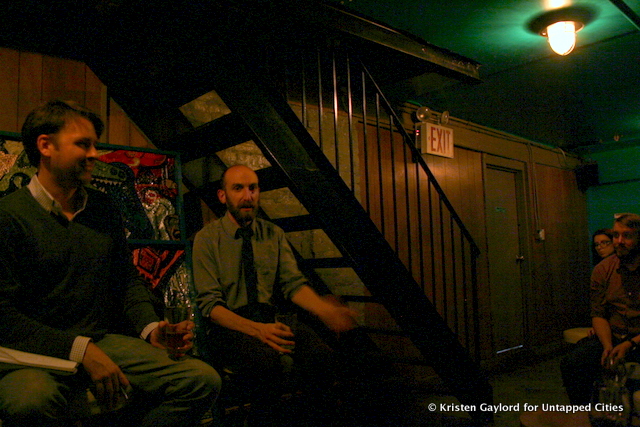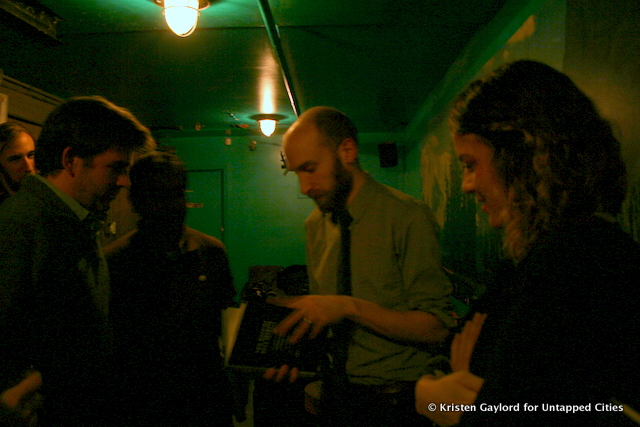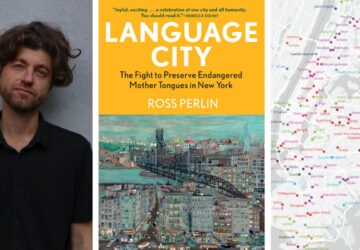For the past few weeks I’ve felt very exposed on the subway. As a member of the nascent New York Public TransLit Commuter Book Club, I dutifully read the selected volume on the subway, as a sort of signal of participation to anyone else in the club. No takers. It didn’t help my paranoia that the further I got into Andy Greenberg’s excellent This Machine Kills Secrets: How WikiLeakers, Cypherpunks, and Hacktivists Aim to Free the World’s Information, the more aware I was of issues of privacy, information leaking, and anonymity.
Togather, the event’s organizer, is a sort of online meeting place for authors and readers, and serves as a way to populate and enliven literary events such as book tours. Anjelica Triola, Senior Marketing and Communications Manager at Togather, explained to me how with a field of over 300 authors, Togather is especially interested in introducing writers to their local audiences, and thus readers to the author that may be living down the street. The Public TransLit Book Club was inspired by a Seattle bus-riding version, with the added twist of bringing the readers and authors together for discussion.
On Wednesday, around 30 book-toting members pushed our way through a very lively networking event of the Young Education Professionals, down the stairs into the appropriately dim basement of Lolita Bar on the Lower East Side to hear from Greenberg.

Greenberg, who writes for Forbes and acknowledged the humor in covering “hackers for a billionaires’ magazine,” has spent years investigating the world of WikiLeaks and cryptography, delving ever deeper into the accompanying technical, ethical, and political implications. This Machine Kills Secrets begins with the story of Daniel Ellsberg and the Pentagon papers, while tracing the convergences and divergences of that story with the one of Bradley Manning. The book then takes us back to the dawn of the internet, and shows how the impulse for anonymity, and the opposing one to expose it, have been present since then in the form of groups like the Cypherpunks, before moving back to WikiLeaks and the current state of anonymity efforts.
There are book reviews available of This Machine Kills Secrets; I barely understand some of the more technical concepts myself, and am hardly qualified to even mention Mix Networks or the differences between PGP and Tor identity-encryption. But I can give you an idea of how fascinating the talk was: about one-third of the way through, a drunk YEP attendee started down the stairs, got a glimpse of all of us, then ran back up and loudly complained, presumably to whomever had sent him down the stairs, “They’re all sitting down there mesmerized by some speaker!” We were.

The $30.40 I paid for the Public Translit Book Club bought me the book in hardcover, two drinks at Lolita, and a face-to-face with the author and other interested New Yorkers. In other words, it felt like a steal. And although no one approached me on the subway, it was exciting to imagine that there were other commuters out their holding up their book spines with anticipation instead of hiding the torrid love scenes of 50 Shades of Grey on their Kindle. I’ll be attending the next New York Public TransLit Commuter Book Club, and, hey, maybe you’ll know me by my subway reading.
Connect with the author at @kaygegay





